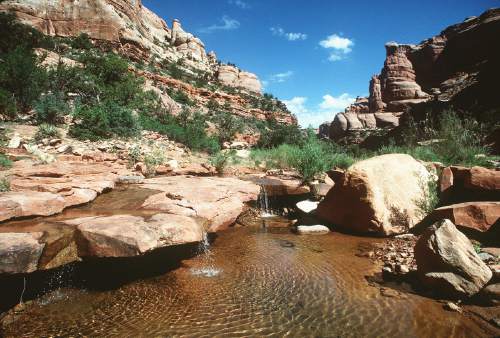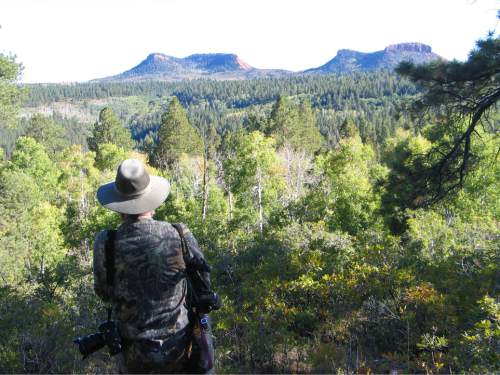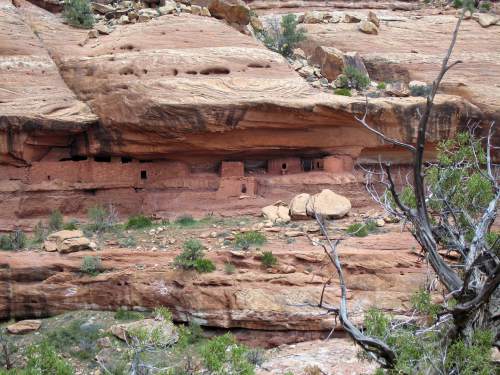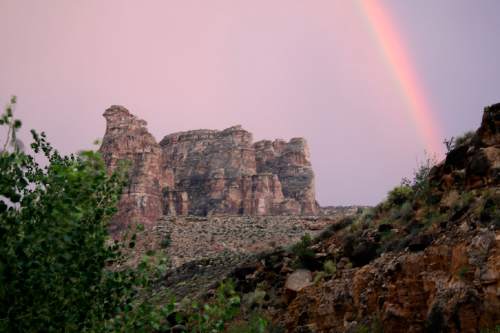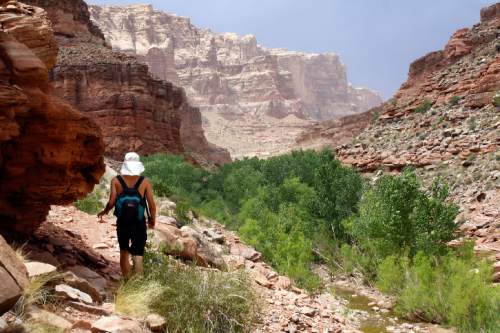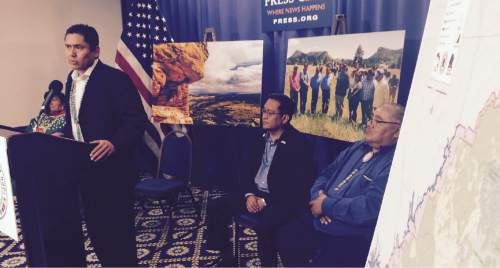This is an archived article that was published on sltrib.com in 2015, and information in the article may be outdated. It is provided only for personal research purposes and may not be reprinted.
Washington • A group of tribal leaders stood two blocks from the White House on Thursday to call on President Barack Obama to name a new national monument in southeastern Utah, arguing that they've felt ignored in their requests to Congress and that the window to designate a monument is closing.
The leaders, from five American Indian tribes, say that a 1.9 million-acre area known as Bears Ears must be protected for cultural and religious reasons and saved for future generations from development.
"Bears Ears offers something unique that we can't find anyplace else in the world," said Eric Descheenie, the Bears Ears Inter-Tribal Coalition's co-chairman and special adviser to the president of the Navajo Nation. "The threat of looting, grave-robbing and mineral-leasing, to name a few — the list is extensive — we've already seen it in and around these lands. If this is something we lose, we lose it forever."
The tribal leaders had sought congressional action to preserve the area, but they say they are frustrated with the process and felt largely excluded by Reps. Rob Bishop and Jason Chaffetz, both Republicans, who have been drafting a major plan to protect some lands in exchange for developing others. While offering the Utah congressmen a second chance to help, the coalition says it has so far felt shut out.
"We haven't been taken seriously, our voices haven't been heard and in some cases, not at all," said Descheenie.
Obama has unilateral authority to name national monuments without congressional approval under the 1906 Antiquities Act, a move he has made several times during his administration. The president has promised more monuments will be designated if Congress doesn't take the initiative.
Emily Beyer, an Interior Department spokeswoman, said in response to the tribal leaders' monument request that the department hopes Bishop and Chaffetz will welcome the tribes' input as the proposed Public Lands Initiative (PLI) is formalized. Interior Secretary Sally Jewell said recently that she looks forward to seeing that proposal soon.
"However, Secretary Jewell has said that the protection of important places Americans hold sacred and love should not fall victim to congressional gridlock, and if Congress does not act, we will continue to work with communities and tribes to ensure that their most important historic and cultural sites are protected for future generations," Beyer said.
In a joint statement, Bishop and Chaffetz, along with Sens. Mike Lee and Orrin Hatch, said many American Indians who live in Utah oppose the coalition's proposal, but that the tribes' input and recommendations are welcomed.
"Our offices have now received over 65 detailed proposals from various stakeholder groups regarding land management in eastern Utah," the four representatives said. "We remain committed to reviewing each proposal and producing a final PLI bill that is balanced and broadly supported."
The Utah members of Congress responded to the Bears Ears coalition even before the group's news conference started at the National Press Club on Thursday. Their statement was emailed, as well as comments from other critics, hours before the news conference.
"As the only elected Navajo official in Utah, I want others to know that we grass-roots Utah Navajo San Juan County residents do not want and oppose a national monument, it will not benefit us," San Juan County Commissioner Rebecca Benally emailed. "A national monument will be devastating to the Navajo people, and [we] strongly oppose it."
Willie Grayeyes, chairman of the Utah Dine Bikeyah, said there were 25 tribes in the Four Corners area that support the national monument proposal and that about 75 percent of the 566 tribes recognized by the federal government back the idea.
"It's not really split if you look at the percentage," Grayeyes said.
Chaffetz's chief of staff, Fred Ferguson, stood in the back of Thursday's news conference and approached tribal officials afterward to note that he looks forward to working with them.
Descheenie noted that there was still plenty of time for the congressional process to work, but in the meantime, the group is going to pursue the monument track with the White House.
The tribal leaders said they handed copies of their proposal to Bishop and Chaffetz's offices and would give it to the Interior Department as well.


